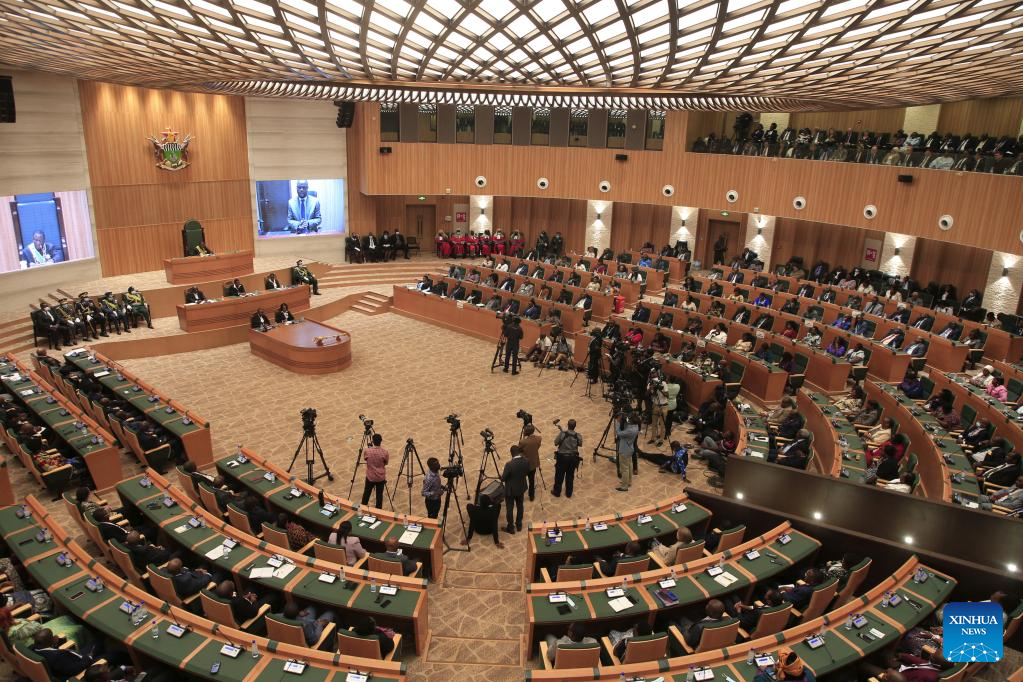
GOVERNMENT-FUNDED school projects are progressing at a snail’s pace due to inadequate funding from Treasury amid calls for the adoption of new funding models like public-private partnerships, a report by a Parliamentary Portfolio Committee has said.
The report, tabled before Parliament by the Primary and Secondary Education Parliamentary Portfolio Committee chairperson Ophias Murambiwa, is a result of an analysis of the Primary and Secondary Education ministry's budget performance reports for the fourth quarter of 2023 and the first quarter of 2024 by the committee.
The report said out of a total of 300 schools targeted for construction last year only 80 were completed while disclosing that the delayed release of Basic Education Assistance Module (Beam) and devolution funds has significantly impacted school development projects, highlighting the need for timely resource allocation.
“The fourth quarter report revealed that the ministry successfully constructed 83 out of the targeted 300 schools in 2023.
“Given the current shortage of 2 800 schools in Zimbabwe, these visits were essential in fulfilling the committee's oversight mandate as stipulated by the Constitution and the Parliament's Standing Rules and Orders,” the report read.
“Financial constraints among key stakeholders, including government, local authorities and school development committees, have slowed project completion, emphasising the need for increased investment.
“While structures exist in most schools, Melbourne Primary School in Chiredzi lacks any construction despite receiving building materials, highlighting issues with implementation.”
The report also revealed that new structures at some schools lacked accessible ablution facilities, indicating the need for more inclusive designs.
- Parliament petitioned over girl child rights
- ‘Bring back pregnant girls to school’
- Proposed Education Trust Fund Bill gets CSOs nod
- Underfunding sinks school projects
Keep Reading
“School development committees (SDCs) and school development associations (SDAs) demonstrate initial enthusiasm but struggle to maintain momentum due to financial constraints.
“Satellite schools face severe overcrowding due to delayed construction and completion, exemplified by Mapona Primary School in Mutoko, which requires urgent infrastructure expansion,” the report said.
“The findings underscore the urgent need for enhanced infrastructural development, the provision of basic amenities and the creation of educational facilities that are resilient to climate change and conducive to learning.”
Meanwhile, the committee has called on Treasury to ensure timely disbursement of funds for the Beam programme before the end of the year.
“The Finance, Economic Development and Investment Promotion ministry should ensure timely disbursement of Beam and devolution funds to schools, with a review of the funding allocation process to be completed by December 31, 2024,” Murambiwa said.
Beam is a government programme introduced in 2001 to pay tuition, examination fees and levies for underprivileged learners.
However, some schools have gone for more than two years without receiving the funds, according to the National Association of Secondary Heads and National Association of Primary Heads.
Beam has over the years been seriously affected by underfunding resulting in beneficiaries failing to access basic education because their fees were not paid.
Government has, however, admitted to the widespread abuse of Beam funds and late disbursement.
Despite not paying for the programme, government has warned schools against turning away learners on Beam over non-payment of fees arguing that the Constitution does not allow pupils to be turned away from school.
For years, government has been promising free basic education but has failed to implement the policy.
The committee urged the Education and Finance ministries to explore alternative funding models, such as public-private partnerships, to support school infrastructural development.
“The Primary and Secondary Education ministry should provide training and capacity-building programmes for SDCs and SDAs on resource mobilisation and project management by April 30, 2025.
“Within 24 months, prioritise construction of additional classrooms and infrastructure in satellite schools, focusing on the most overcrowded,” the committee said.










